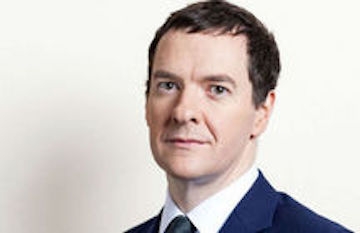Controlling directors of small and medium sized firms, and others who use their own businesses to pay into their pension plans, could be hit by a Corporation Tax cut, a Financial Planner has warned.
In the wake of the Brexit vote, Chancellor George Osborne suggested a cut to 15% or lower – a level that would approach the 12.5% in Ireland to send a message that the UK remains “open for business”.
One group of savers to lose out from this reduction would be those who use their own businesses, such as controlling directors of SMEs, to pay into their pension plans, according to Gary Smith, Financial Planner at Tilney.
He said: “Currently, employer pension contributions qualify for Corporation Tax at 20%, resulting in a £1,000 pension payment effectively costing the company £800. However, should Corporation Tax be reduced to 15%, the effective cost of a £1,000 pension payment would be £850, an increase in cost of £50 to the employer.
“Those individuals who are saving for their retirement through their businesses might be wise to seek to maximise pension contributions whilst 20% Corporation Tax remains available.”
The current rate of 20% is already due to be reduced to 19% during the remainder of this Parliament.
Overall, Mr Smith said, however, the cut could be beneficial for many UK investors and savers. Those who invest in UK based equity funds could see an increase in the dividends received, he said.
He said: “This would benefit those investors who access these types of funds through their pensions, Unit Trust/OEICs and Investment Bonds (both onshore and offshore versions).”
People investing in UK Onshore Investment Bonds could benefit further due to the taxation of these types of investment vehicles, he said.
He explained: “Under current legislation the provider of Onshore Bonds have to pay Corporation Tax on income and growth within the investment funds at the current rate of 20%.
“The bond provider is permitted to claim indexation relief on growth within the funds, which results in the actual rate of Corporation Tax payable being below 20%, with the widely held understanding that the actual rate of tax is somewhere between 18% and 19%. Should Corporation Tax be reduced to 15% or less then the tax paid on UK onshore bonds will also reduce, thus potentially providing higher ongoing investment returns, which will benefit the investor.”
For these reasons, he said that Tilney would welcome the cut to “help investors boost investment returns during a period when the returns from investments are being squeezed in a low interest rate / low inflation environment.”

